What are the reasons people want to live on Mars? Well, there are many interesting facts and questions out there about Mars. Some of them include if there was once water on Mars. I will delve deeper into some of them below. But first here is some of the basic information.
The planet Mars is fourth in succession from the Sun. It has a cold, dusty, desert environment. It has seasons and a thin atmosphere with a mean surface temperature of -82 °F. The Martian year is 686.98 Earth days and has an orbital velocity of 14.975 miles per second.
In some ways, Mars is very much like Earth. Some of the similarities include weather patterns, volcanoes and canyons, and days consisting of approximately 24 hours. It seems as though Mars is a sterile frozen desert but there is some interesting speculation that at one point there was water on Mars. It may have even had oceans.

Why Are Scientists So Sure That There Was Once Water On Mars?
Scientists believe there was once water on the planet because there are geological indicators to support the fact that there was water on Mars. You can see in the image below, which is provided by NASA, that compares what resembles river rock formations from Mars with those found on Earth. You can see that they have similar sizes, shapes, and textures which happen due to erosion caused by natural waterways.
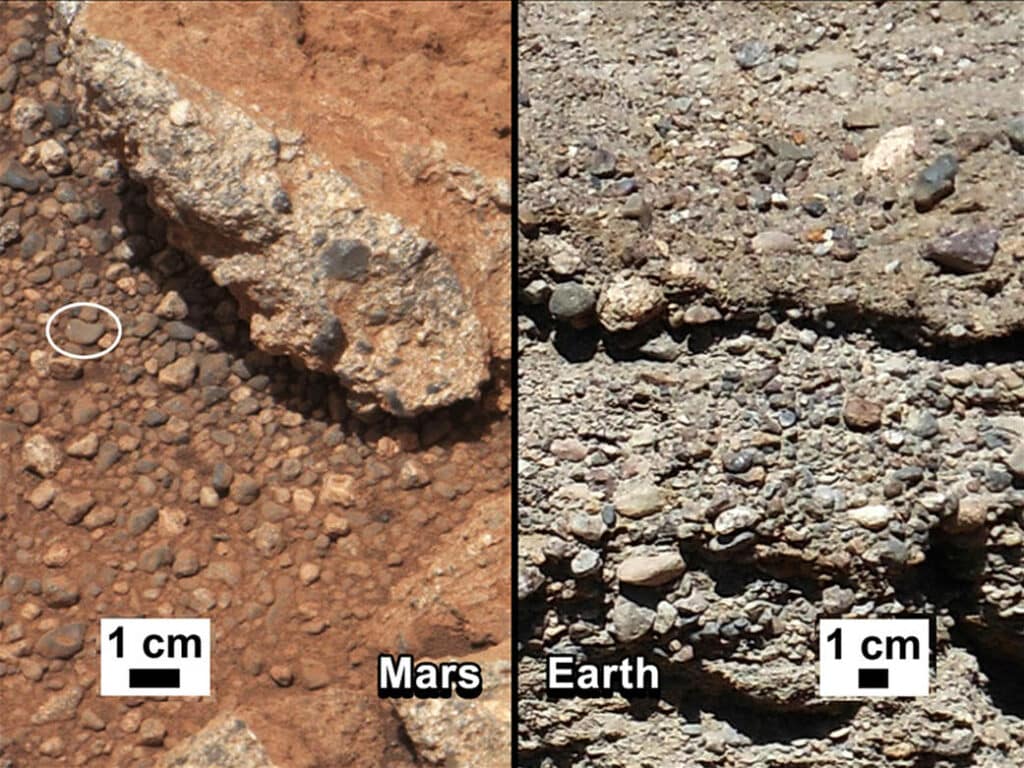
Then we also have similarities in some other rock formations that look a lot like our river and lake beds. You can see side-by-side images below for your own comparison. On the left is an image titled Sedimentary Signs of a Martian Lakebed from Nasa and on the right side is an image from Lake Powell Arizona.
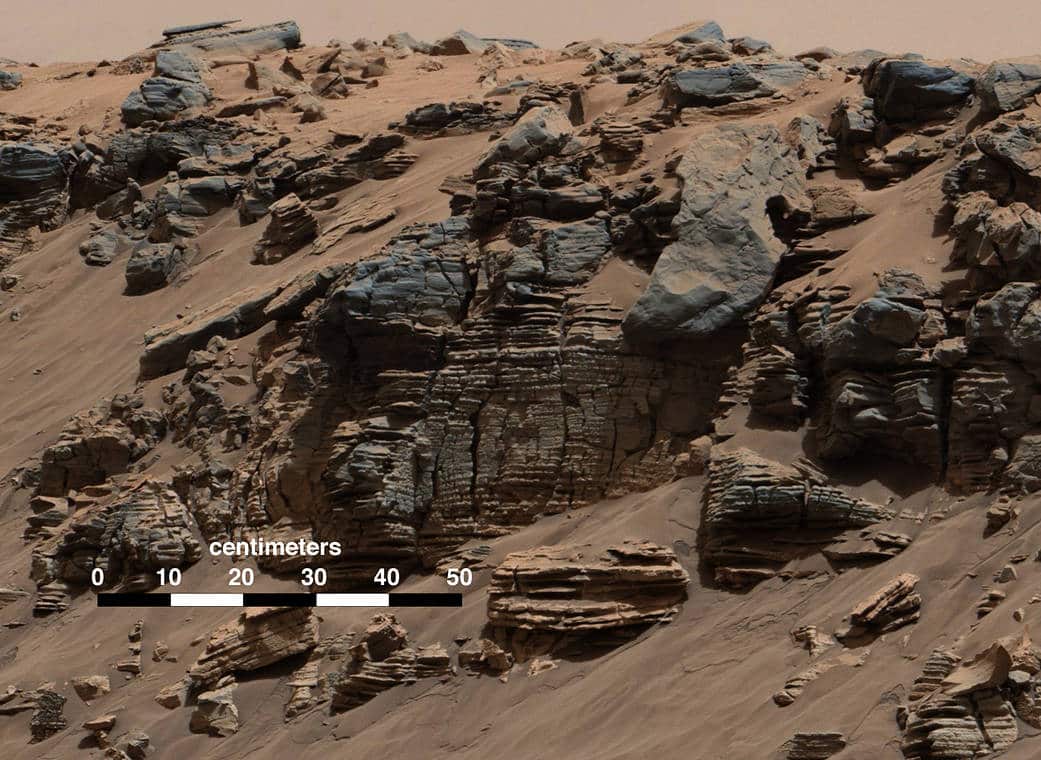
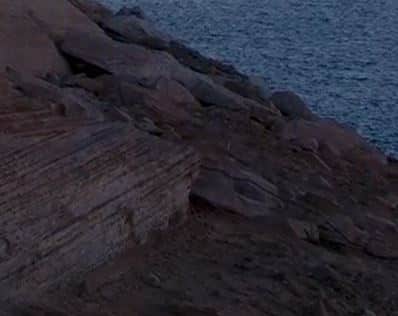
What Is The Angriest Planet In Our Solar System?
First, we must determine what would be associated with anger itself because anger is a human emotional expression. We associate anger with heat, the color red, and violent outbursts often derived from feelings of betrayal, loss, violation, and provocation.
Mars is called the angry red planet because of the reddish color of the planet and the association between anger and the color red. And therefore it has often been associated with warfare and slaughter. It was also named after the Roman god of war.
It is as simple as that.
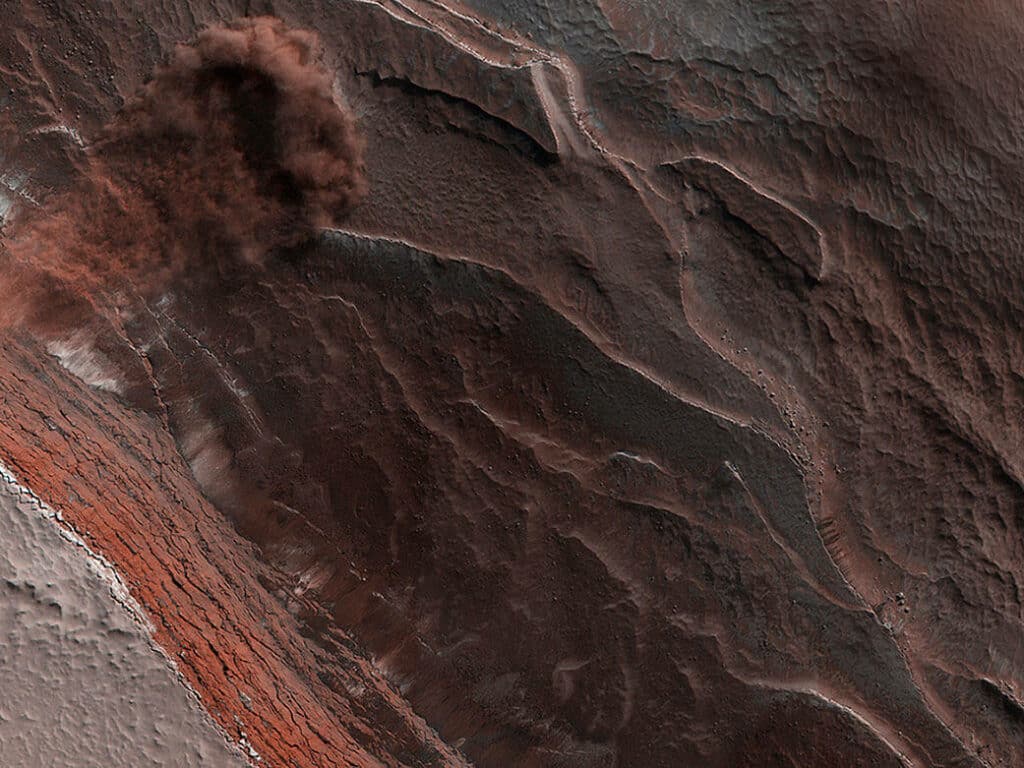
Why Do People Want To Live On Mars?
- The Curiosity Factor
- I would suspect that many people would like to live on Mars for a variety of different reasons. Most of us have an innate curiosity that wills us to explore new and exciting things which is probably the first factor.
- Blank Slate
- Some might feel like a blank slate is the only way to basically have a “do-over” and see if we cannot create a better structure in both society and government. Even Elon Musk has provisions in the Starlink Terms Of Service that provide for this event as can see below.

- Civilization Beyond Earth
- To terraform the planet in order to make it more like Earth and therefore, habitable to humans and vegetation so that it would have the ability to sustain life on Mars and beyond.
- Human Survivability
- Human survivability may someday depend on the colonization of other planets. We cannot see the future and who knows when a worldwide catastrophe might take place.
- Understanding The Evolution
- In order to understand the evolution of the planet and how to colonize it we first need to be able to gather a lot more information that is only available on-site.
Just to name a few. I am sure there are many more.
What Have We Found On Mars?
The Curiosity Rover discovered that Mars contains Oxygen, Nitrogen, Phosphorus, and Sulfur and that it is metal rich. Curiosity also found that Mars has the ability to support living microbes. But so far there has been no definitive proof that there has ever been life on the planet.
We have found craters, canyons, volcanoes, and a canyon system much like the Grand Canyon only much bigger. We also found that the soil is full of perchlorates, which is essentially rocket fuel, that in turn makes it impossible to grow anything.
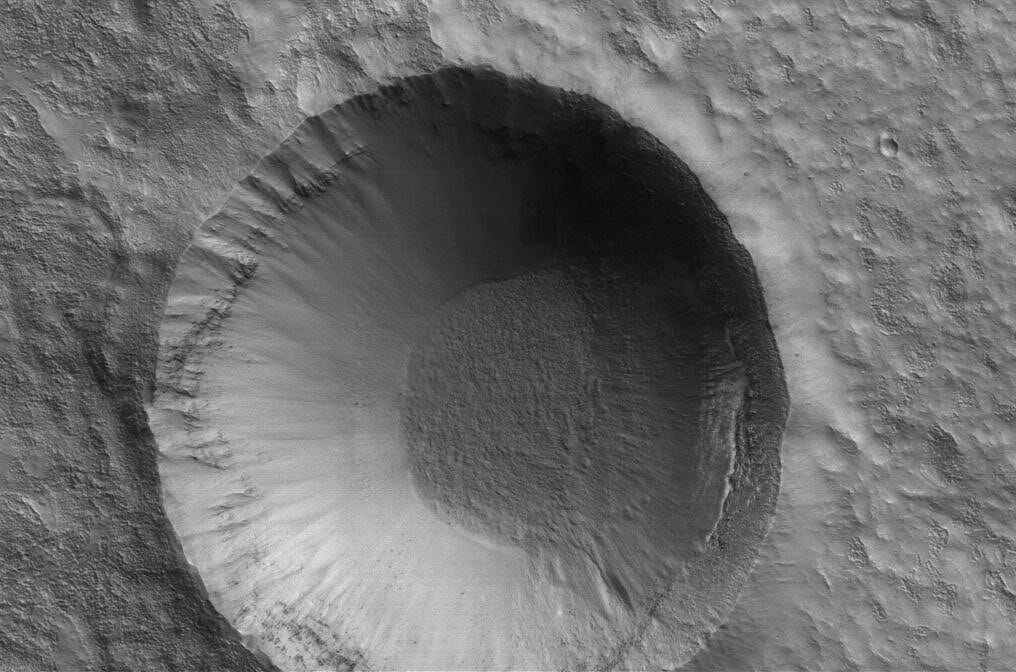
The Wrap Up
In conclusion, I have learned a great deal that I did not already know. I found it particularly interesting that there are so many people out there that would readily leave Earth today to live on Mars without so much as a backward glance. I am not at this point yet myself. The human mind is a very mysterious thing.
If you would like to discover more outside of our planetary system, you might enjoy the articles on Extra-Solar Planets. Or to learn more about life on other planets have a look at the article Habitable Planets.
If you have learned something new or exciting, please let me know in the comment section below.
There is so much more that remains unknown in both space and time. I will keep exploring the possibilities and sharing my experiences with you here.
This post contains affiliate links. Learn more and read our full disclosure policy here.

If you have any questions about Astro Explorations or if you have any comments that you would like to share, feel free to leave them down below and I will get back to you as soon as possible.
Disclosures & Policies
References
Encyclopedia Britannica. (2022, September 02). Mars. Retrieved from Encyclopedia Britannica: https://www.britannica.com/place/Mars-planet
NASA. (2011, November 1). Mars’ Newton Crater. Retrieved from NASA: https://www.nasa.gov/multimedia/imagegallery/image_feature_2095.html
NASA. (2012, September 27). Rock Outcrops On Mars And Earth. Retrieved from NASA: https://www.nasa.gov/mission_pages/msl/multimedia/pia16189.html
NASA. (2014, December 8). Sedimentary Signs of a Martian Lakebed. Retrieved from NASA: https://www.nasa.gov/jpl/msl/pia19074
NASA. (2020, August 17). Capturing an Avalanche on Mars. Retrieved from NASA: https://www.nasa.gov/image-feature/capturing-an-avalanche-on-mars
Starlink. (2022, October 21). Starlink Terms Of Service. Retrieved from Starlink: https://www.starlink.com/legal/documents/DOC-1020-91087-64?regionCode=US


Hey Brandaley! Your blog contains a lot of information about Mars. It really opens a lot of aspects about science and other planets around us. I wish if you could continue writing about other planets. There are thousands and thousands of planets around the Earth.
The simplicity of your writing highlighted a lot of answers to a lot of questions about Mars Planet. It’s amazing how scientists found similarities in our planet likewise canyons, volcanoes, and bigger canyon system. You mentioned that Mars also is rich in Nitrogen and other important metals and maybe there are a lot of resources out there and scientists did not discover it yet.
But the most important questions I personally ask myself about; How we are going to benefit from this other planet? Who are going to benefit from all these resources? Are we going to take human being disputes and disagreements with us?
Thank you again for this amazing Blog!
Hello Neda,
I am going to continue to explore space and time. I just wanted to explore our universe before I go beyond it. I too, find it fascinating that science has found similarities between Earth and Mars. It will definitely give them insight into how to make it more habitable to humans.
There are possibilities of colonizing other planets and I would love to see it but I think it will take time beyond my ability to see it. My children maybe. And unfortunately, I do think that we will probably take some of our human issues with us, but hopefully will overcome them.
Thank you for your comments and insights. They are appreciated.
Have a wonderful day!
Brandaley
Curiosity is one of the primary reasons people want to live on Mars. From all indications, the planet looks like a dead end. Although you mentioned the planet having oxygen and other gaseous elements, the outright absence of water will make survival much more challenging. But if a worldwide catastrophe forces man to live on mars, then man will have a lot of improvisation to do to make it comfortable to survive
Hello Parameter,
Yes, I agree that curiosity is probably the biggest factor. I also agree that the absence of water would make it seem almost impossible. But we have some brilliant people in the world and maybe one of them will be able to figure out how to colonize it or another planetary body in the future.
That way we can all fly around like the Jetsons!
Have a wonderful day!